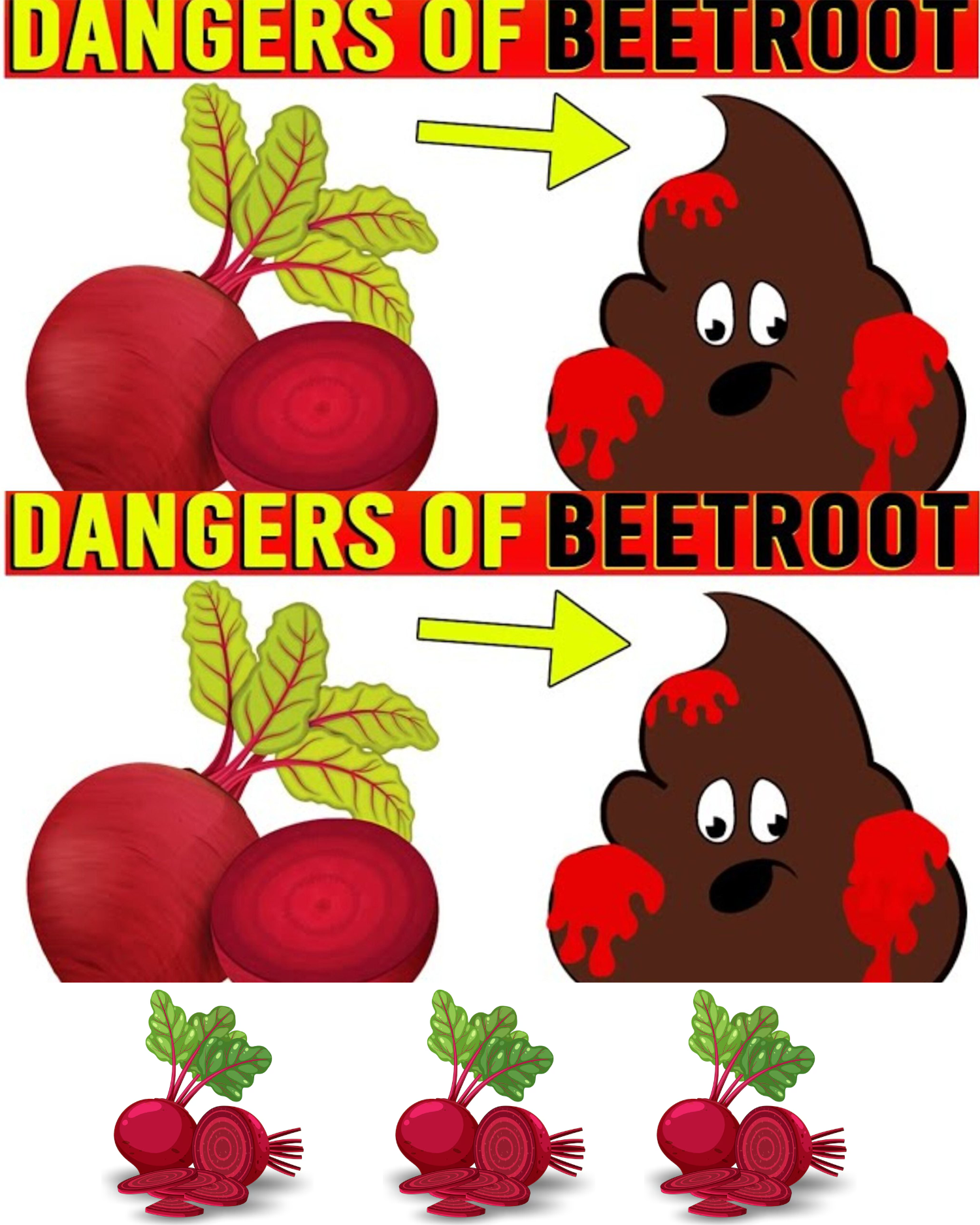
Packed with vitamins, minerals, and antioxidants, beetroot is a nutrient powerhouse. Although it has numerous health advantages, there may be some negative consequences if used in excess or under specific circumstances. Here are some possible drawbacks to consider before including it into your diet on a daily basis.
1. May Cause Kidney Stones
Beetroot is rich in oxalates, which can contribute to kidney stone formation in people prone to them. If you have a history of kidney stones, it’s best to consume beets in moderation.
2. Can Lower Blood Pressure Too Much
Beets naturally help to lower blood pressure because of their nitrate content. However, for people already on blood pressure medications, eating too many beets may cause a significant drop, leading to dizziness or fainting.
3. Might Turn Urine and Stool Red or Pink
A harmless but surprising effect of beetroot is a condition called beeturia, where your urine or stool may turn pink or reddish. Though this isn’t dangerous, it can be alarming if you’re not expecting it.
4. Can Cause Stomach Issues

Certain people may experience bloating, gas, or stomach cramps after consuming beets, especially when they have a sensitive digestive system. Beets are rich in fiber, which, if eaten in excess, may lead to digestive discomfort.
5. May Affect Blood Sugar Levels
Though beets have a low glycemic index, they are naturally high in sugar. Consuming them in large quantities can cause a spike in blood sugar levels, making it important for people with diabetes to monitor their intake.
6. Possible Allergic Reactions
Though rare, some individuals may have allergic reactions to beetroot, experiencing symptoms like hives, itching, or swelling. If you notice any allergic reactions after eating beets, it’s best to avoid them.
7. Might Interfere with Calcium Absorption
Thanks to their high oxalate content, beets can reduce calcium absorption in the body. Over time, this may affect bone health if not balanced with other calcium-rich foods.




















